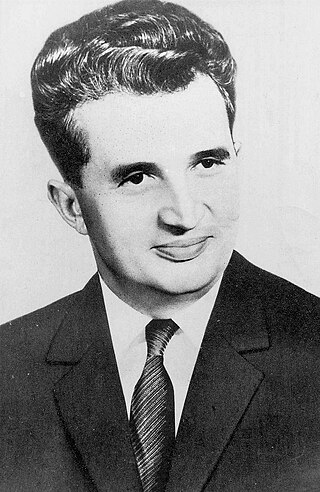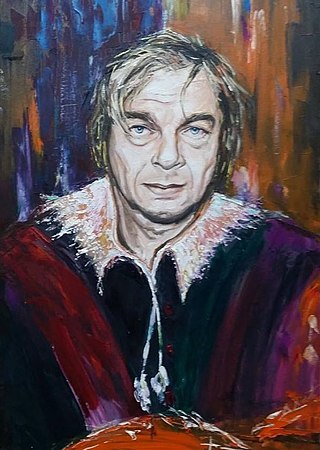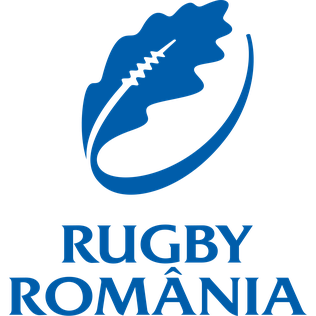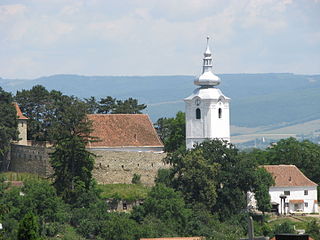Related Research Articles

Nicolae Ceaușescu was a Romanian politician who was the second and last communist leader of Romania, serving as the general secretary of the Romanian Communist Party from 1965 to 1989. Widely classified as a dictator, he was the country's head of state from 1967 to 1989, serving as President of the State Council from 1967 and as the first President of the Republic from 1974. He was overthrown and executed in the Romanian Revolution in December 1989 along with his wife Elena Ceaușescu, as part of a series of anti-communist uprisings in Eastern Europe that year.

John Hunyadi was a leading Hungarian military and political figure during the 15th century, who served as regent of the Kingdom of Hungary from 1446 to 1453, under the minor Ladislaus V.

Nichita Stănescu was a Romanian poet and essayist.

The Romania national rugby union team, nicknamed Stejarii, has long been considered one of the stronger European teams outside the Six Nations. They have participated in all but one Rugby World Cup and currently compete in the first division of the European Nations Cup, which they won in 2017. Rugby union in Romania is administered by the Romanian Rugby Federation.

Sfântu Gheorghe is a city that serves as the seat of Covasna County in Transylvania, Romania. Located in the central part of the country, it lies on the Olt River in a valley between the Baraolt Mountains and the Bodoc Mountains. The town administers two villages, Chilieni (Kilyén) and Coșeni (Szotyor).

This is a survey of the postage stamps and postal history of Romania.
Thracology is the scientific study of Ancient Thrace and Thracian antiquities and is a regional and thematic branch of the larger disciplines of ancient history and archaeology. A practitioner of the discipline is a Thracologist. Thracology investigates the range of ancient Thracian culture from 1000 BC up to the end of Roman rule in the 4th–7th centuries AD. It is believed 'modern' Thracology started with the work of Wilhelm Tomaschek in the late 19th century.

The Great National Assembly was the supreme body of state power of the Socialist Republic of Romania. The Great National Assembly was the only branch of government in Romania, and per the principle of unified power, all state organs were subservient to it. After the overthrow of Communism in Romania in December 1989, the Great National Assembly was dissolved by decree of the National Salvation Front (FSN) and eventually replaced by the bicameral parliament, made up of the Assembly of Deputies and the Senate.
The Romania national under-21 football team, also known as Romania under-21s or Romania U21(s), is considered to be the feeder team for the Romania national football team.

The Silviu Ploeșteanu Stadium, previously known as Tineretului Stadium, is a multi-purpose stadium in Brașov, Romania. It is currently used mostly for football matches and is the home ground of SR Brașov and Corona Brașov. The arena was named after Silviu Ploeșteanu (1913–1969) on April 13, 2002, who managed the club between 1948 and 1968.
The Romanian men's national ice hockey team is the national men's ice hockey of Romania, and a member of the International Ice Hockey Federation. They are currently ranked 27th in the 2019 IIHF World Rankings and currently compete in Division IA. They have competed in four Olympic ice hockey competitions, the most recent being in 1980.
The 1980–81 Divizia A was the sixty-third season of Divizia A, the top-level football league of Romania.

Costică Ștefănescu was a Romanian football player and coach who last managed Qatari side Al Shamal. He spent the majority of his career at FC Universitatea Craiova, where he made a club-record 378 appearances. He is also the second all-time appearance leader in Liga I, having played in 490 matches. In 1983, Ștefănescu was nominated for the Ballon d'Or. He played for the Romania national team from 1977 to 1985, and was capped 66 times. In August 2013, after suffering from cancer for a long time, he committed suicide by jumping from the fifth floor of the military hospital in Bucharest.

Sorin Cârțu is a former football striker and football coach, currently honorary president at Liga I club Universitatea Craiova.
Nicolae Manea was a Romanian football player and manager.
Dacology is a branch of Thracology which focuses on the scientific study of Dacia and Dacian antiquities and is a regional and thematic branch of the larger disciplines of ancient history and archaeology. A practitioner of the discipline is a Dacologist. Dacology investigates the range of ancient Dacian culture from c. 1000 BC up to the end of Roman rule in the 4th-7th centuries. It is directly subordinated to Thracology, since Dacians are considered a branch of the Thracians by most mainstream research and historical sources. Other theories sustain that the Daco-Thracian relation is not as strong as originally thought and as such Dacology has the potential to evolve as an independent discipline from Thracology.
The UEFA European Under-18 Championship 1980 Final Tournament was held in East Germany. It also served as the European qualification for the 1981 FIFA World Youth Championship.
The 1980 Cupa României Final was the 42nd final of Romania's most prestigious football cup competition. It was disputed between Politehnica Timișoara and Steaua București, and was won by Politehnica Timișoara after a game with 3 goals, in extra time. It was the second cup for Politehnica Timișoara.
The 1979–80 County Championship was the 38th season of the Liga IV, the fourth tier of the Romanian football league system. The champions of each county association play against one from a neighboring county in a play-off to gain promotion to Divizia C.
The 1980–81 County Championship was the 39th season of the Liga IV, the fourth tier of the Romanian football league system. The champions of each county association play against one from a neighboring county in a play-off to gain promotion to Divizia C.